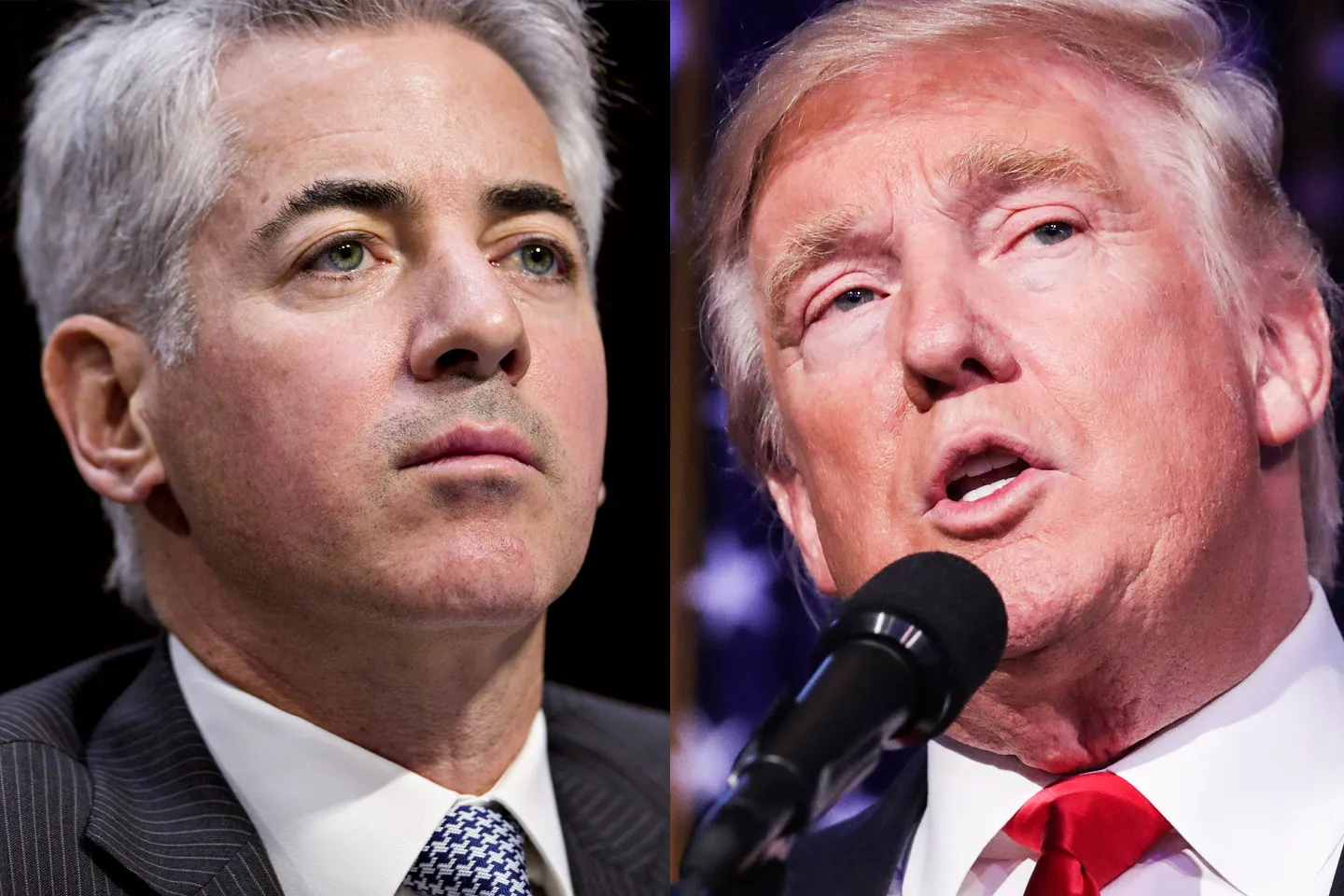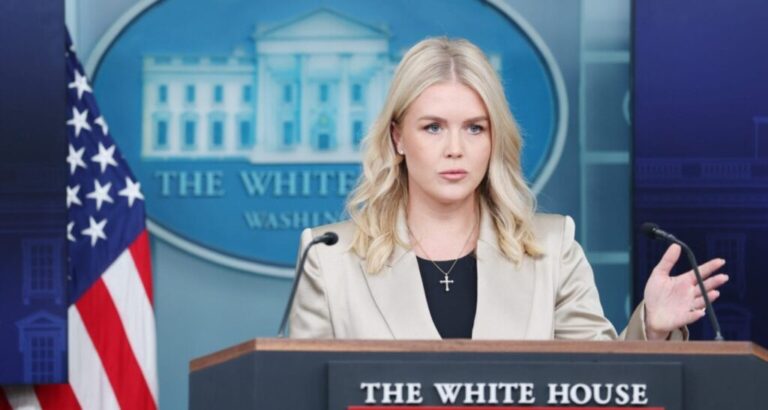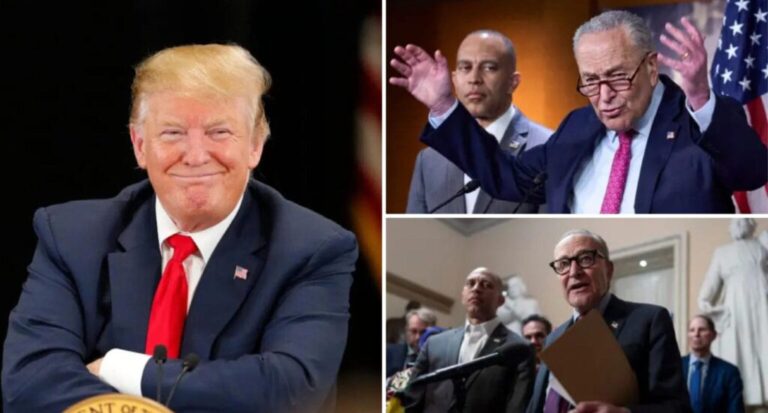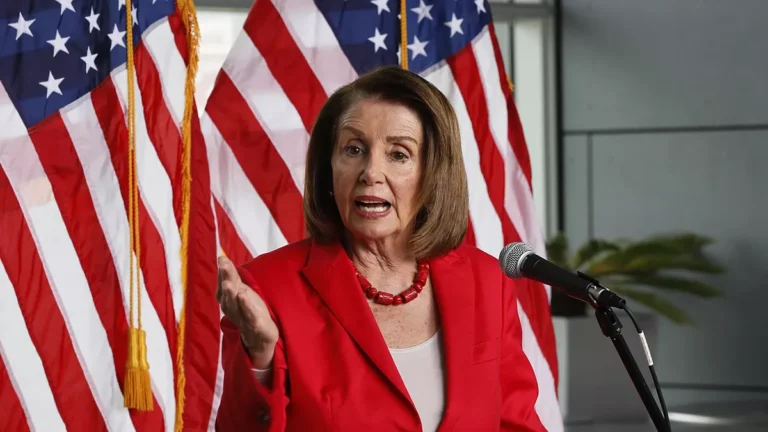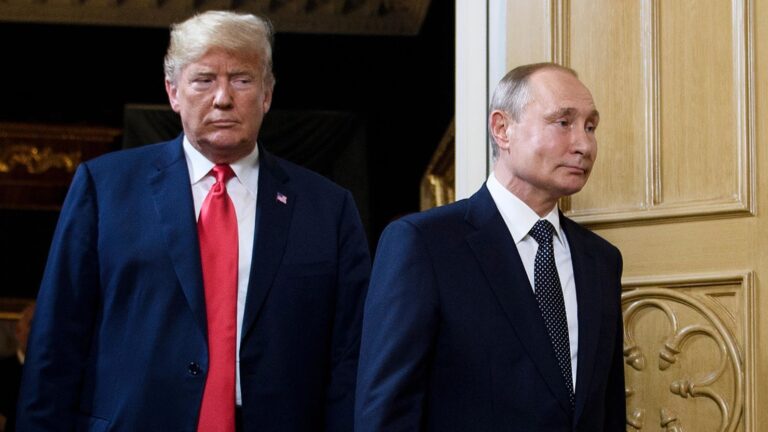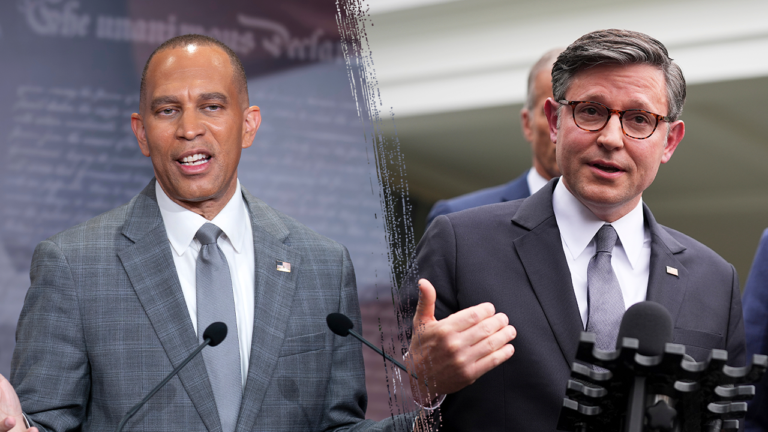Bill Ackman Praises Trump as the Most Pro-Business President Ever Amid Political Involvement
In a bold statement this Tuesday, billionaire hedge fund manager Bill Ackman, the CEO of Pershing Square Capital Management, praised President Donald Trump as “the most pro-business president we’ve ever had.” Speaking on CNBC’s “Squawk Box,” Ackman highlighted Trump’s economic policies, particularly his administration’s tax and infrastructure initiatives, as key drivers of the U.S. economy’s growth during his tenure in office.
His comments add to the growing chorus of business leaders who have supported Trump’s economic agenda, even as political divisions within the country continue to deepen.Ackman’s endorsement of Trump’s economic strategies is not new, but his latest remarks come at a time when his political involvement has become more pronounced.
As one of Wall Street’s most influential figures, Ackman’s words carry weight in both financial and political circles. His backing of Trump’s business-friendly policies highlights a critical connection between the corporate world and the President, who has often been seen as a champion for American business interests.
During Trump’s presidency, the U.S. saw significant tax cuts, regulatory rollbacks, and a focus on boosting corporate investment. Ackman credited these moves as key to improving the business environment.“I think Trump has been the most pro-business president we’ve ever had,” Ackman remarked, emphasizing the importance of tax reform and infrastructure initiatives that spurred corporate confidence.
One of Trump’s signature achievements was the 2017 Tax Cuts and Jobs Act, which lowered corporate tax rates and incentivized businesses to repatriate overseas profits. Ackman believes that this policy, along with other efforts to reduce regulations, created an environment where businesses could thrive. His comments also underscore the belief that Trump’s focus on tax relief was a driving factor behind the economic growth the U.S. experienced in the early years of his presidency.
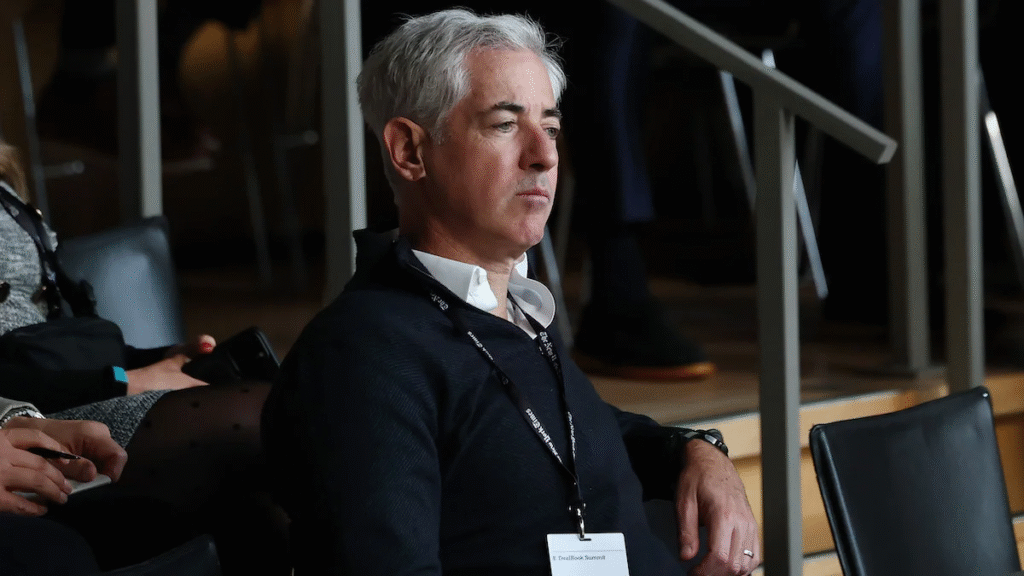
Additionally, Ackman praised the Federal Reserve’s accommodative stance toward interest rates during Trump’s tenure, which he argued further complemented the president’s economic agenda.”The Federal Reserve was very supportive of Trump’s pro-business policies,” Ackman noted, pointing to the central bank’s decisions to lower interest rates, making borrowing cheaper for businesses and consumers alike.
Despite his praise for Trump’s business policies, Ackman did not always agree with every aspect of the President’s economic strategy. One of the more contentious elements of Trump’s administration was his trade policy, particularly his use of tariffs on China and other trading partners.In April of Trump’s first year in office, the president announced sweeping tariffs aimed at addressing trade imbalances and protecting U.S. industries. At the time, Ackman expressed concern about the potential negative impact on the economy.
However, after engaging with Trump personally, Ackman noted that the president reconsidered his approach, pausing the tariffs and ultimately finding a more balanced solution.“He took a pause, which I think was the right move,” Ackman recalled, reflecting on how Trump’s decision to reassess his policies helped avert a potentially damaging trade war.
This moment of reflection demonstrates that while Ackman may have disagreed with some of Trump’s tactics, he still trusted the president’s ability to course-correct when necessary.This level of trust is not uncommon among business leaders who view Trump as someone who understands the complexities of the corporate world, even if they do not always agree with every decision he makes.
While Ackman’s remarks about Trump focus on economic policies, his political involvement has extended beyond Wall Street. In recent months, the billionaire investor has become more vocal in his opposition to the political left, particularly in his hometown of New York City.Ackman has thrown his support behind candidates who align with his pro-business values and has expressed concerns about the growing influence of socialism in U.S. politics.In particular, Ackman has been a vocal opponent of Zohran Mamdani, a self-described democratic socialist who is running for mayor of New York City.
Mamdani’s platform, which includes proposals for affordable housing, criminal justice reform, and universal healthcare, is in stark contrast to Ackman’s more market-oriented approach to solving the city’s problems. Ackman has criticized Mamdani’s policies, arguing that they would be detrimental to the financial health of the city.“We do not want a socialist leading the most important financial city in the country,” Ackman said, reflecting his concerns that Mamdani’s policies could hurt the business community in New York.
To further his opposition, Ackman recently donated $1 million to Defend NYC, a super PAC aimed at opposing Mamdani’s campaign. This move has positioned Ackman as a key player in the local political scene, where his influence could potentially sway voters in favor of more business-friendly candidates.The super PAC, which was founded by Jason Meister, a former Trump campaign adviser, has pledged to run an aggressive media campaign against Mamdani, branding him as a “radical socialist.
“Ackman’s substantial donation places him among the largest contributors to the anti-Mamdani effort, behind only former New York City Mayor Michael Bloomberg, who contributed $8.3 million to support former Democratic Governor Andrew Cuomo in his unsuccessful primary bid.
Ackman’s donation to the Defend NYC super PAC underscores the deep connection between major financiers, real estate figures, and pro-business interests in New York’s political future.His financial support for anti-socialist causes and his vocal backing of Trump’s business policies highlight the alignment of certain sectors of the business world with the President’s agenda.

By contributing to political campaigns that oppose candidates like Mamdani, who represents a shift toward socialist policies, Ackman is signaling his preference for leaders who prioritize business growth, economic stability, and market-oriented solutions.This move also reflects the broader divide within American politics, where the business community has increasingly become a key player in supporting conservative or pro-market candidates who are seen as defenders of capitalism and free enterprise.
Ackman’s political influence extends beyond his support for candidates in local races. He has also been a vocal defender of Trump’s broader political agenda, particularly when it comes to issues related to higher education and free speech.In a highly publicized instance earlier this year, Ackman called on Harvard University, his alma mater, to “end its arrogance” and comply with reform demands issued by the Trump administration.
Ackman took issue with Harvard’s diversity, equity, and inclusion (DEI) programs, arguing that they had “poisoned Harvard’s admissions practices” and contributed to a rise in antisemitism on campus. In a lengthy post on X (formerly Twitter), Ackman criticized the university for failing to accept the Trump administration’s calls for reform, which included shutting down DEI programs in order to remain eligible for federal funding.
“The answer to what Harvard should do is therefore obvious,” Ackman wrote. “It must accept the administration’s requests and take all necessary steps to implement them.”His comments reflect a broader ideological divide between the business community and academia, particularly when it comes to issues of political correctness, diversity initiatives, and free speech.
Bill Ackman’s comments about Trump and his growing political involvement demonstrate the significant influence that business leaders continue to wield in shaping the direction of U.S. politics.As a vocal advocate for Trump’s pro-business policies, Ackman has helped to cement the connection between the business community and the Republican Party, particularly among those who view Trump’s economic agenda as beneficial to corporate growth and market stability.As the 2024 presidential election approaches, Ackman’s involvement in both national and local politics will undoubtedly continue to be a topic of discussion.
His support for Trump’s economic policies, coupled with his vocal opposition to socialist candidates like Zohran Mamdani, signals that he is committed to maintaining a political climate that is favorable to business interests.
The coming years will likely see Ackman playing an increasingly prominent role in shaping the political landscape, both through his financial support for pro-business candidates and his outspoken defense of Trump’s economic legacy.Whether or not his influence will be enough to sway the course of the nation’s political future remains to be seen, but one thing is clear: Bill Ackman will continue to be a powerful force in American politics.
